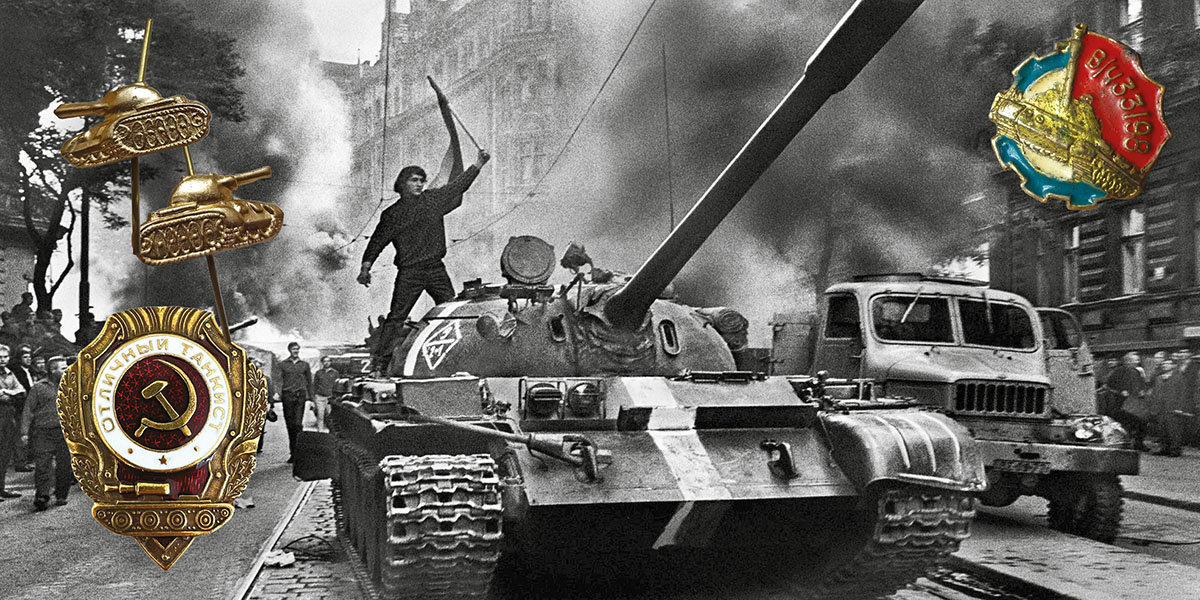The epithet ‘tankie’ began as an insult from one group of communists to another. It was coined by those in the Communist Party of Great Britain who opposed the invasion of Czechoslovakia by Warsaw Pact tanks in 1968 against those who supported it. They weren’t alone. The suppression of the ‘Prague Spring’ outraged many communists, and many parties – including one of the biggest, the Italian PCI, which officially condemned an invasion directed at a communist party that spoke of ‘socialism with a human face’.
‘Tankie’ being used on the internet half a century later as a blanket term for ‘Marxist’ is an example of the trivialisation of political language. It is akin to the use by Labour Party staffers of ‘Trot’ to mean, in their words, ‘anyone to the left of Gordon [Brown]’.
Beyond these particularly dumb uses, ‘tankie’ has come to mean something quite specific, interchangeable with ‘campist’ (whose origins are in the Stalin-era definition of a ‘socialist camp’ and an ‘imperialist camp’). Campism, or tankiehood, is generally reducible to a willingness not just to take a pacifist or ‘plague on both your houses’ position on certain international disputes, but to openly and enthusiastically side with whichever camp is in opposition to the United States.
This can lead to apologism at best and enthusiasm at worst for violent capitalist rulers, from Muamar Ghaddafi to Bashar al-Assad to Vladimir Putin. However, this sort of tankiehood tends to have a focus on imperialism and ‘racial capitalism’, with roots much more in Maoism or 1970s ‘third worldism’ than in the pro-Soviet trends of west European communist parties. It can be seen in the online cult of once-forgotten books such as J Sakai’s vituperative Maoist history of the American white working class, Settlers.
It is tempting to simply condemn the tankie, though excessive emphasis can be placed on what are, in truth, small groups of keyboard warriors in (mainly US) university halls of residence. Leaders who have frequently co-operated with the American ‘wars on terror’, such as Assad, Putin or Xi Jinping, have been improbably reimagined as part of an ‘axis of resistance’ on those few occasions when their goals happened to clash with those of the USA. There are undoubtedly people so myopic that they can see occupation and imperialism for what it is in, say, Palestine, but not in, say, Ukraine.
Yet there are elements in tankie thought that are not all utterly stupid. A left that has known nothing but defeat for 40 years knows almost nothing of real historical left-wing projects of state-building, and of actually holding and defending territory, preferring moralistic retrospective condemnation. The online tankies, however, can tell you all about Thomas Sankara’s Burkina Faso or the Communist Party of India (Marxist)’s Kerala.
Tankies have some admirable qualities — a trenchant opposition to Euro-American power, an interest in real social experiments, a refusal to condemn ‘both sides’ in conflicts in which one side is obviously the stronger. The best of them will grow up in time into good, thoughtful socialists.
Further reading
- Raphael Samuel, The Lost World of British Communism (Verso, 2006)
- Max Elbaum, Revolution in the Air: Sixties Radicals Turn to Lenin, Mao and Che (Verso, 2002)










